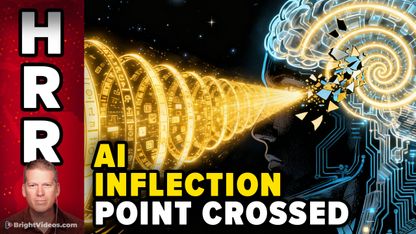
There are several different types of stroke, and all of them could be fatal:
- Ischemic stroke. This type, which makes up nearly 90 percent of strokes, occurs when the brain is deprived of blood flow because of a blood vessel blocked by a clot.
- Hemorrhagic stroke. This happens when a weakened blood vessel in the brain ruptures – often due to high blood pressure. It can be caused by aneurysms and arteriovenous malformations.
- Transient ischemic attack (TIA). Also referred to as a "mini-stroke," a TIA is caused by a temporary clot. It is a warning sign for a future stroke and should be taken just as seriously as ischemic or hemorrhagic strokes.
- Cryptogenic stroke. This term is used for strokes that are idiopathic or whose causes are unknown.
- Brain stem stroke. A stroke in the brain stem can impact both sides of the body and may result in a "locked-in" state, where the person cannot move or speak below the neck.
Key warning signs of a stroke
To quickly identify a stroke, health care experts are advising people to remember the acronym "F.A.S.T.," which stands for:
- Face drooping. Notice if one side of the face droops or feels numb. Ask the potentially affected person to smile and if the smile is uneven, this could be a warning of a stroke.
- Arm weakness. Check if one arm is numb or weak. Ask the person to lift both arms and if one arm drifts downward, it is another sign of a possible stroke.
- Speech problems. Listen for slurred or unusual speech when the affected person tries to repeat a simple sentence.
- Time to act. If the potentially affected person exhibits even just one of these stroke warning signs, call 911 right away so that the person can be taken care of immediately.
There are many other symptoms to look out for, including chronic headaches, involuntary twitching of eyelids or facial muscles, memory lapses and difficulty focusing, numbness in the face or limbs, trembling, unexpected drooling or trouble walking.
Tips to lower your stroke risk
Taking steps now to reduce your risk can help people lower their chances of experiencing a stroke.
Alcohol consumption
Refusing to drink any alcohol at all would be the best way to mitigate stroke risk. Those who drink must do so in moderation, or no more than one drink per day. It may also be advisable to drink red wine, as it may offer some protective benefits against heart disease and stroke.
Blood pressure control
Maintaining healthy blood pressure is crucial for preventing strokes. Aim for a blood pressure reading of less than 120/80, although some individuals may need a slightly higher target.
To maintain healthy blood pressure, avoid high-cholesterol foods, consume plenty of fish, fruits, low-fat dairy, vegetables and whole grains, and reduce salt intake to no more than 1,500 milligrams daily.
Diabetes management
Keeping blood sugar levels under control is vital for stroke prevention. Monitor blood sugar regularly and manage it through diet, exercise and following the advice of health care practitioners.
Dietary choices
Incorporating certain foods into the diet can significantly lower stroke risk. Garlic, particularly purple and solo varieties, can help clear clogged arteries. Onions, rich in flavonoids, offer anti-inflammatory benefits that reduce the risk of ischemic stroke.
Shiitake mushrooms contain compounds that protect against artery hardening, while whole grains like brown rice and wheat support heart health by improving blood pressure and cholesterol levels. Corn, a high-fiber food, aids in preventing cardiovascular diseases. Green tea, loaded with catechins, boosts metabolism and offers anti-inflammatory benefits. (Related: Bioactive compounds in GINGKO BILOBA found to improve cognitive recovery after stroke.)
Quit smoking
Smoking is a major risk factor for stroke. Those that have trouble quitting are advised to seek help, whether through counseling, medication or the use of nicotine replacements.
Regular exercise
Exercise at moderate intensity several times a week. Simple routines, like breaking workouts into shorter, more numerous sessions or taking the stairs instead of the elevator at work can also make a big difference.
Read more stories like this at Health.news.
Watch this video discussing early warning signs of stroke and keys to prevent it.
This video is from the Daily Videos channel on Brighteon.com.
More related stories:
STUDY: Anger can increase heart attack or stroke risk for up to 40 minutes.
Study discovers that STROKE could be TRANSMISSIBLE via blood transfusions.
Study reveals vitamin C is key to preventing stroke and promoting heart health.
Stroke rates are down by 50% for older adults – but for those younger, not so much.
Sources include:
Please contact us for more information.






















